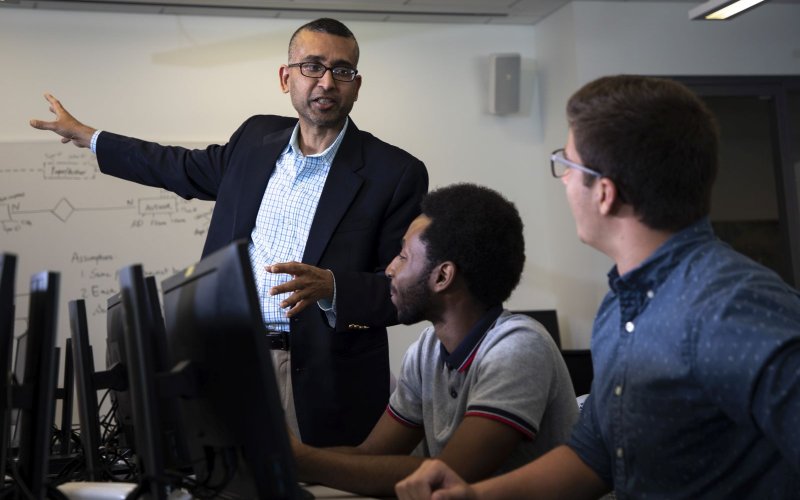Study looks at how businesses cope with “COVID fatigue”

ALBANY, N.Y. (April 29, 2021) — The global pandemic has led to massive disruptions in life and in business, and the sense that it will soon be over brings up new challenges. “COVID fatigue,” negative attitudes toward continued mask wearing, and the perception that the crisis has passed can lead to an increase in risky behavior.
These are some of the key findings of research into changing attitudes to the COVID-19 pandemic and the ways businesses are managing the disruptions. The study, led by Professor Sanjay Goel, chair of the Information Security and Digital Forensics in the Massry School of Business, was funded by a $300,000 grant from the Economic Development Administration (EDA) of the U.S. Department of Commerce.
Goel was aided by Professor of Psychology Kevin Williams and doctoral student Gage Matyasovszky, who conducted and analyzed a nationwide survey on people’s attitudes and behaviors regarding COVID-related restrictions and why they would choose to violate them. Williams, who is dean of UAlbany’s Graduate School, has a deep background in human motivation in organizational settings.
The report includes some solutions for businesses, such as providing accurate information, clear policies and rationale for mandated safe behaviors. Surveying work groups can identify specific challenges and allow companies to tailor messaging to address those concerns. Workers may also benefit from short breaks and time to for training and open discussion regarding safe practices, the study found.
“COVID fatigue is setting in among people while the pandemic is not yet eclipsed, and even the most conscientious people are starting to relax restrictions,” Goel said. “Our study shows new factors organizations can focus on to build interventions that help employees cope with COVID-related stress and remain disciplined in COVID restrictions. Our goal is to help businesses stay safe and resilient as they return from remote operations and continue to provide guidance and support.”
The EDA grant also funded internships for several students, who have been partnering with area businesses since last fall to help with technical support for changes made necessary by the pandemic.
“COVID-19 forced businesses to transform their operations rapidly into online operations,” Goel said, noting that many businesses struggled with technology and information security in the transition.
The EDA funding came through UAlbany’s Forensics, Analytics, Complexity, Energy and Transportation Security (FACETS) Center, which works to facilitate economic growth through collaborations, research, entrepreneurial opportunities and jobs in the field of cybersecurity.




